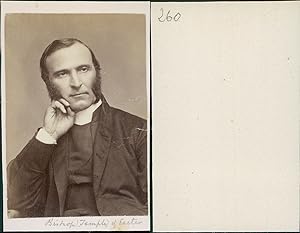Ordained by Devon Ashley (3 results)
Product Type
- All Product Types
- Books (2)
- Magazines & Periodicals
- Comics
- Sheet Music
- Art, Prints & Posters
- Photographs (1)
- Maps
-
Manuscripts &
Paper Collectibles
Condition
Binding
- All Bindings
- Hardcover
- Softcover (2)
Collectible Attributes
- First Edition
- Signed
- Dust Jacket
- Seller-Supplied Images (1)
- Not Printed On Demand (2)
Seller Location
Seller Rating
-
Ordained: The Immortal Archives
Published by CreateSpace Independent Publishing Platform, 2011
ISBN 10: 1461001528ISBN 13: 9781461001522
Seller: Good Buy 2 You LLC, Fredericksburg, VA, U.S.A.
Book
Paperback. Condition: Good. Scuffs to covers. Clean, flat pages. Cover art may differ from web image.
-
Ordained: The Immortal Archives
Published by Createspace, 2011
ISBN 10: 1461001528ISBN 13: 9781461001522
Seller: Revaluation Books, Exeter, United Kingdom
Book Print on Demand
Paperback. Condition: Brand New. 332 pages. 8.00x5.25x0.83 inches. This item is printed on demand.
-
Bishop (Temple) of Exeter, Frederick Temple, Archbishop of Canterbury
Publication Date: 1870
Seller: photovintagefrance, ARNAVILLE, France
Photograph
Photographie,vintage CDV albumen carte de visite, Frederick Temple (30 November 1821 ? 23 December 1902) was an English academic, teacher, churchman, and Archbishop of Canterbury, from 1896 until his death. Temple was born in Santa Maura, one of the Ionian Islands, the son of Major Octavius Temple, who was subsequently appointed lieutenant-governor of Sierra Leone. On his retirement, Major Temple settled in Devon and contemplated a farming life for his son Frederick, giving him a practical training to that end.[2] Temple's grandfather was William Johnson Temple, Rector of Mamhead in Devon, who is mentioned several times in James Boswell's Life of Johnson.[3] Temple was sent to Blundell's School, Tiverton, and soon showed signs of being suited to a different career. He retained a warm affection for the school, where he did well both academically and at physical activities, especially walking. The family was not wealthy, and Temple knew he would have to earn his own living. He took the first step by winning a Blundell scholarship at Balliol College, Oxford,[4] before he was seventeen.[2] The Tractarian Movement had begun five years earlier, but the memorable Tract 90 had not yet been written. In the intellectual and religious excitement, he drew closer to the camp of "the Oxford Liberal Movement." In 1842 he took a double first and was elected fellow of Balliol, and lecturer in mathematics and logic. Four years later he was ordained, and, with the aim of improving the education of the very poor, he accepted the headship of Kneller Hall, a college founded by the government for the training of masters of workhouses and penal schools. The experiment was not successful, and Temple himself advised its abandonment in 1855. He then accepted a school-inspectorship, which he held until he went to teach at Rugby School in 1858. In the meantime he had attracted the admiration of Prince Albert of Saxe-Coburg-Gotha, and in 1856 he was appointed Chaplain-in-Ordinary to Queen Victoria. In 1857 he was select preacher at his university.[2] Rugby[edit] At Rugby School, Thomas Arnold had died in 1842 and had been succeeded by Archibald Campbell Tait, who again was followed by Edward Meyrick Goulburn. Upon the resignation of the latter the trustees appointed Temple, who in that year (1858) had taken the degrees of B.D. and D.D. His life at Rugby School was marked by great energy and bold initiative.[2] Temple strengthened the school's academic reputation in the classics, but also instituted scholarships in natural science, built a laboratory, and recognised the importance of these subjects. He reformed the sporting activities, in spite of all the traditions of the playing fields. His own tremendous powers of work and rough manner intimidated the pupils, but he soon became popular, and raised the school's reputation. His school sermons made a deep impression on the boys, teaching loyalty, faith and duty.[2] It was two years after he had taken up his work at Rugby that the volume entitled Essays and Reviews caused a controversy. The first essay in the book, "The Education of the World," was by Temple. The authors of the volume were responsible only for their respective articles, but some of these were deemed so destructive that many people banned the whole book, and a noisy demand, led by Samuel Wilberforce, Bishop of Oxford, called on the headmaster of Rugby to dissociate himself from his comrades. Temple's essay had dealt with the intellectual and spiritual growth of the race, and had pointed out the contributions made respectively by the Hebrews, the Egyptians, the Greeks, the Romans, and others. Though accepted as harmless, it was blamed for being in the book. Temple refused to repudiate his associates, and it was only at a much later date (1870) that he decided to withdraw his essay. In the meantime, he printed a volume of his Rugby sermons, to show definitely what his own religious position was.[2] In politics Temple was a follower of William Ewart Gladstone, and he approved of the disestablishment of the Church of Ireland. He also wrote and spoke in favour of the Elementary Education Act 1870 of William Edward Forster, and was an active member of the Endowed Schools Commission.[2] In 1869, Gladstone offered him the deanery of Durham, but he declined because he wanted to stay at Rugby School. When later in the same year, however, Henry Phillpotts, bishop of Exeter, died, the prime minister turned again to Temple, and he accepted the bishopric of the city he knew so well.[2] "He has displayed ability in the free handling of religious subjects, and has nevertheless been made a Bishop" As Bishop of Exeter, by "Coïdé" (James Tissot) in Vanity Fair, 1869 Bishoprics[edit] The appointment caused a fresh controversy; George Anthony Denison, Archdeacon of Taunton, Anthony Ashley Cooper, 7th Earl of Shaftesbury, and others formed a strong committee of protest, while Edward Pusey declared that "the choice was the most frightful enormity ever perpetrated by a prime minister". At the confirmation of his election, counsel was instructed to object to it, and in the voting the chapter was divided. Gladstone stood firm, and Temple was consecrated on 21 December 1869. There were murmurings among his clergy against what they deemed his harsh control, but his real kindness soon made itself felt, and, during the sixteen years of his tenure, he overcame the prejudices against him, so that when, on the death of John Jackson in 1885, he was translated to London, the appointment gave general satisfaction. In 1884 he was Bampton Lecturer, taking for his subject "The Relations between Religion and Science." In 1885 he was elected honorary fellow of Exeter College, Oxford.[2] Temple's tenancy of the bishopric of London saw him working harder than ever. His normal working day at this time was one of fourteen or fifteen hours, though under the strain blindness was rapidly coming on. Many of his clergy and candidates for ordination tho.



